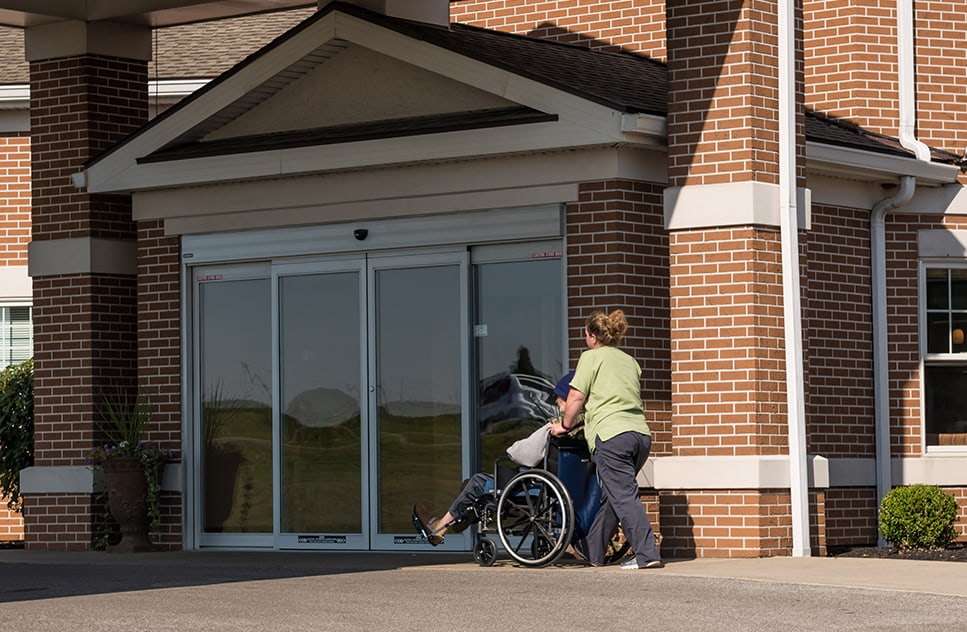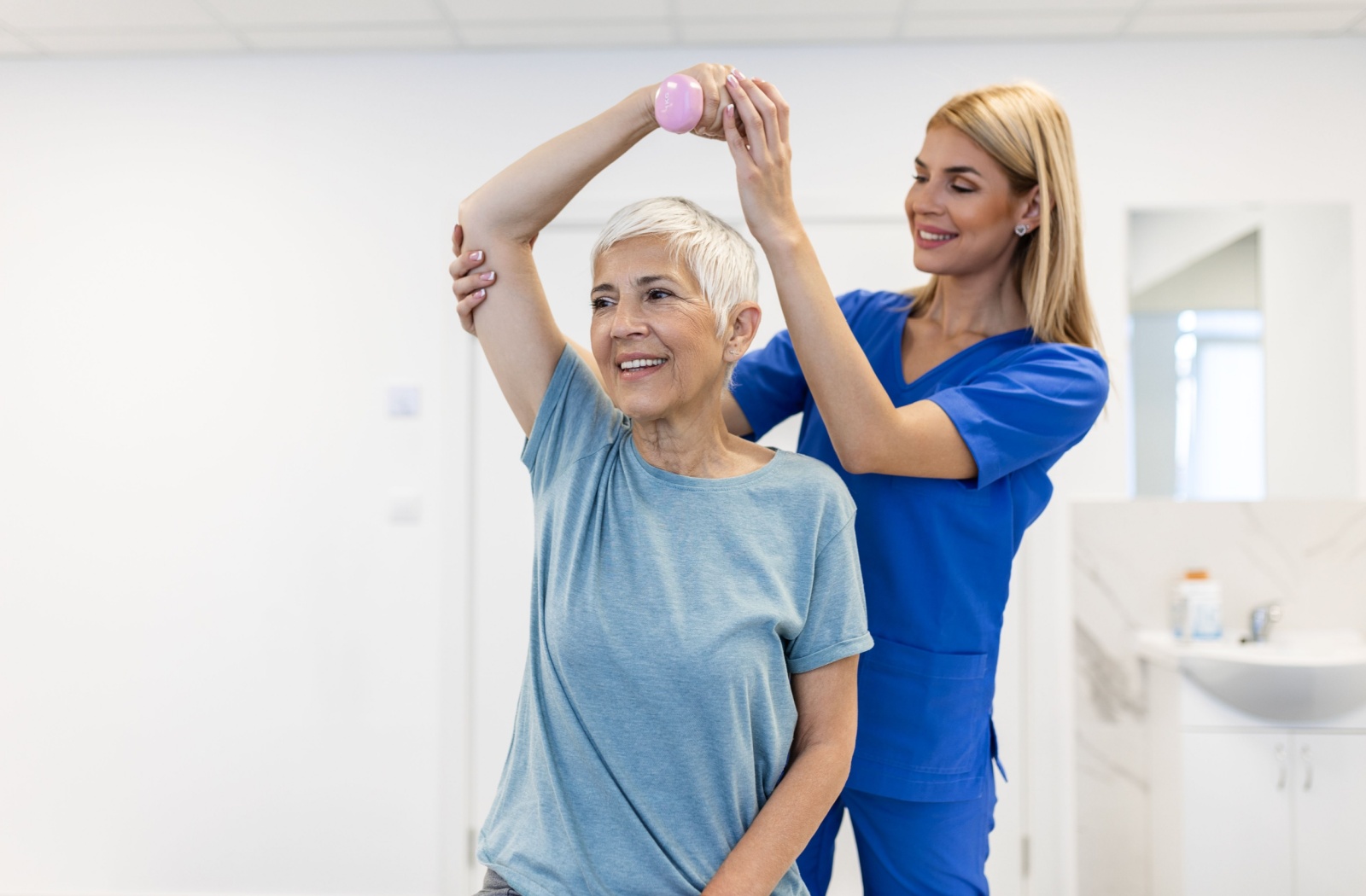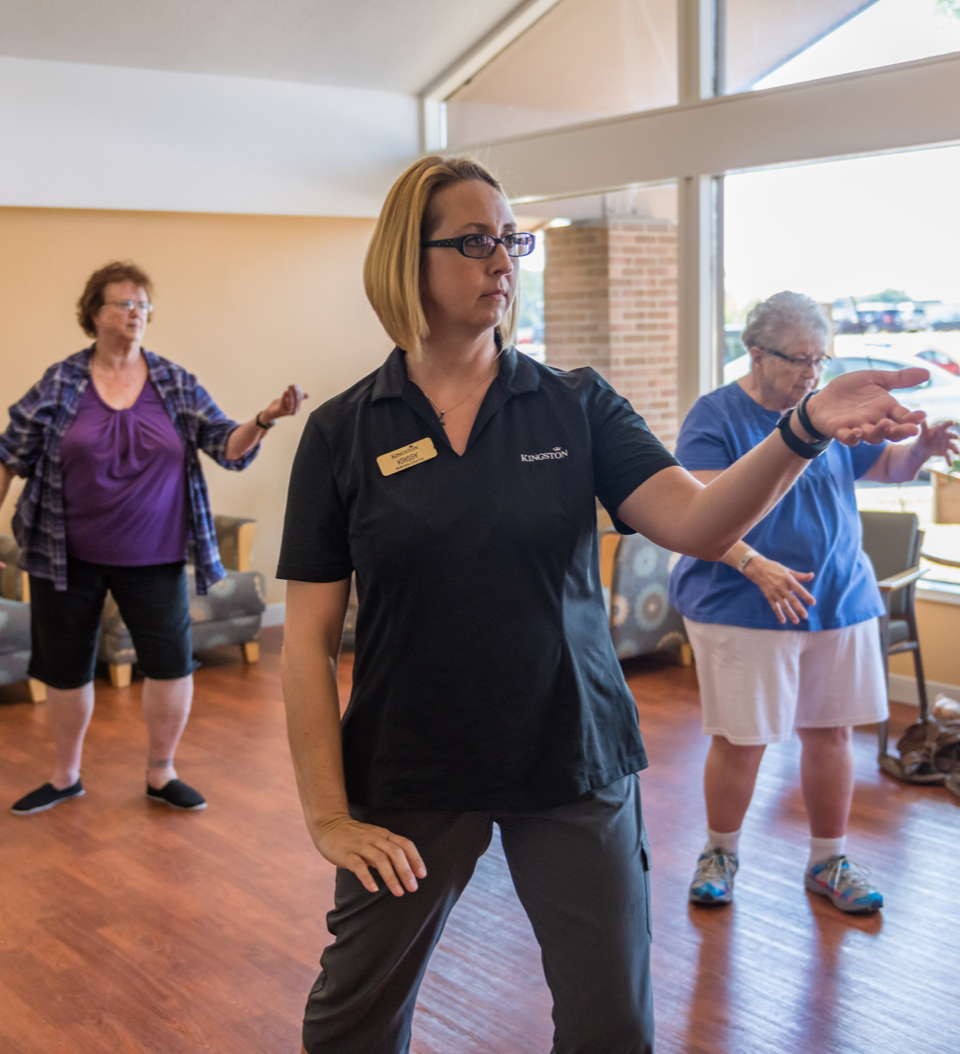Key Takeaways
- Rehabilitation communities offer therapy services to support strength, safety, and confidence after illness or injury
- Physical therapy helps improve mobility, balance, and pain control through personalized exercises
- Occupational therapy supports daily activities and home safety using adaptive strategies
- Speech therapy strengthens communication and swallowing abilities for greater independence
- Nutritional support and fitness programs encourage healthy recovery and long-term wellness
- The right combination of therapies should match your loved one’s unique recovery goals and comfort level
Rehabilitation in Senior Living
When a loved one is recovering from surgery, illness, or injury, rehabilitation can play a vital role in their overall recovery. That’s why senior living communities often offer rehabilitative services to help older adults recover from injuries, illnesses, or surgery. They provide comprehensive care to support your loved one’s recovery through targeted exercises and programs.
These include:
- Therapy options for seniors in rehabilitation
- Physical therapy for strength and mobility
- Occupational therapy to support daily living
- Speech therapy for communication and swallowing
- Nutritional support and personalized meal planning
Physical Therapy for Strength and Mobility
Physical therapy helps restore strength, flexibility, and mobility following an injury or medical event. For older adults, it’s often a first step toward regaining independence and lowering the risk of future falls or complications. Your physical therapist will work with you to develop exercises and activities that target your specific needs.
Focus Areas of Physical Therapy
A physical therapist may support your loved one with:
- Increasing joint mobility
- Improving strength and balance
- Reducing pain without medication
- Preventing falls or reinjury
This type of therapy is especially helpful after joint replacements, strokes, or long hospital stays. A therapist will create a plan that meets your loved one’s specific needs. They’ll also adjust exercises as your loved one improves to maintain steady progress over time.
Occupational Therapy to Support Daily Living
Occupational therapy focuses on helping seniors perform everyday tasks more easily and safely. For a loved one recovering from illness or facing age-related changes, this therapy can be key to maintaining dignity and comfort in daily routines.
Daily Skills Occupational Therapy Can Improve
Occupational therapy often includes:
- Assistance with dressing or grooming
- Safe meal preparation and cooking
- Use of adaptive tools and techniques
- Home safety recommendations
Therapists work with families to help seniors use tools and strategies that support independence. These improvements often extend beyond therapy sessions and continue at home.
Speech Therapy for Communication and Swallowing
Speech therapy supports seniors who are experiencing changes in speech, language, or swallowing. This is often needed after strokes, brain injuries, or neurological conditions that affect how a person expresses themselves or eats safely.
Common Goals of Speech Therapy
Speech therapists help with:
- Clearer speech and pronunciation
- Understanding language and responding
- Strengthening the voice
- Safe swallowing strategies
Improved communication helps loved ones stay connected to friends and family, while swallowing therapy reduces the risk of malnutrition or choking during meals.
Nutritional Support and Personalized Meal Planning
A balanced diet is essential during recovery. Nutritional services in rehabilitation communities help tailor meals to meet each resident’s health goals, dietary needs, and personal preferences. This builds a foundation for a smoother recovery and a healthier life.
Nutrition Services That Support Recovery
Nutritional services in rehabilitation communities tend to include:
- One-on-one nutrition consultations
- Custom meal plans for medical conditions
- Support with healthy weight management
- Education around healthy eating habits
With help from a dietitian, your loved one can enjoy meals that support both energy and healing.

Group Fitness and Wellness Programs
Alongside one-on-one therapy, many seniors benefit from gentle exercise in a group setting. These wellness activities help residents stay active, build confidence, and socialize with others in similar stages of recovery.
Types of Fitness Programs Available
Communities often offer:
- Seated or chair-based exercises
- Balance and fall-prevention classes
- Aquatic therapy or water aerobics
- Light group fitness sessions for connection
These programs encourage consistent movement and a sense of community, both of which support long-term wellness. When it comes to recovery, this can be invaluable.
How to Choose the Right Therapy Option for Your Loved One
Every person heals in their own way. That’s why it’s important to match therapy services to your loved one’s specific health needs, preferences, and daily routines. The right fit can make a meaningful difference in both recovery outcomes and emotional well-being.
So, start by considering their current challenges. Are they struggling with movement, everyday tasks, communication, or appetite? From there, talk with the care team to understand which therapies will offer the most benefit. Most communities offer evaluations to help guide this process and personalize care.
Would Your Loved One Benefit From Rehabilitation Care?
The most effective therapy programs become part of your loved one’s regular routine. These programs aren’t supposed to be a hassle, but a way to restore independence to your loved one’s life. That’s what they deserve.
Every senior’s rehabilitation journey is different. At Kingston of Ashland, our approach combines personalized therapy with consistent encouragement and support. Whether your loved one is recovering from a recent surgery or needs ongoing care to stay mobile and independent, we’re here to help. Schedule a visit with us today, and together, let’s help your loved one.






